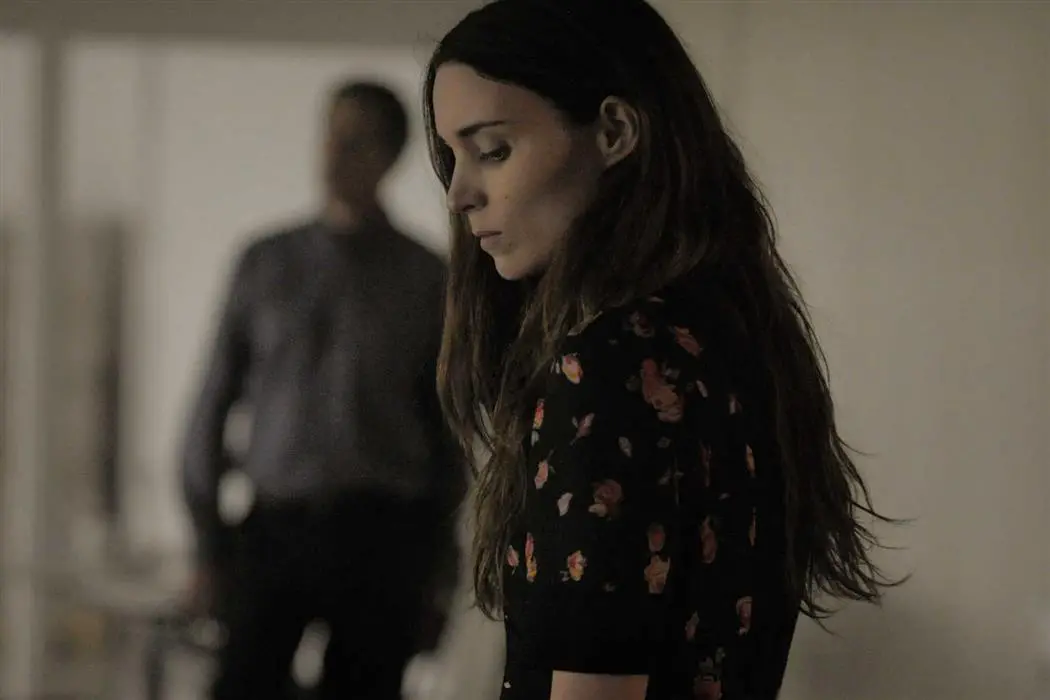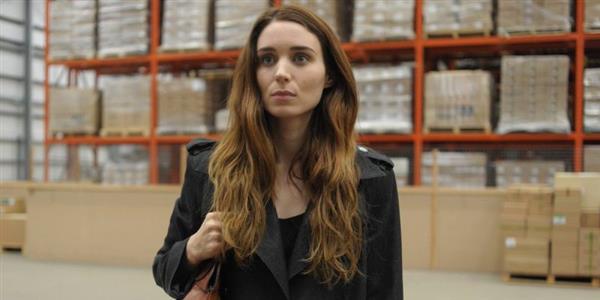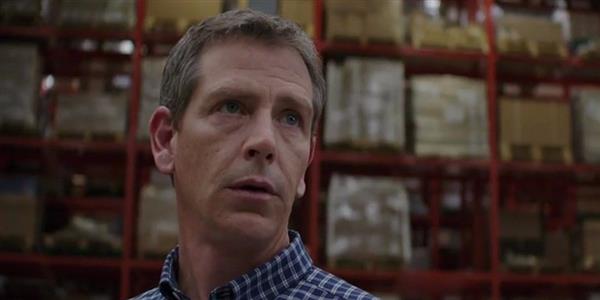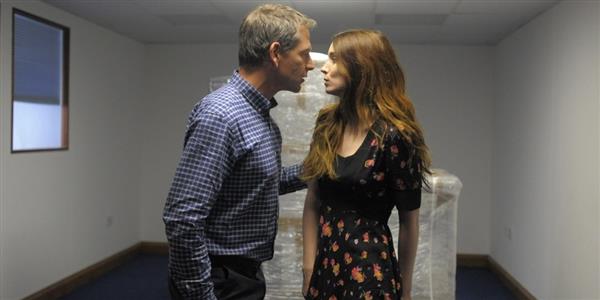UNA: Confronting A Painful & Unforgettable Past

Kristy Strouse is the Owner/Editor in Chief of Film Inquiry,…
There is a certain spot in your gut, uneasy and lingering, where the powerful Una finds a home.
In the opening scene we see a young girl waiting in front of her home, and then a young woman at a club engaging in meaningless sex. Both are at the precipice of two of the most significant moments of their life, and both are Una.
Innocence lost
Directed by Benedict Andrews and written by David Harrower, the film follows Una, played by Rooney Mara, as she sets off to reconnect with a man from her past. After finding his picture in the newspaper, she arrives at his place of work, and Ray (now called Pete, and played by Ben Mendelsohn) knows who she is at first glance.
The instant recognition stems from a discomforting sexually abusive history that began when she was thirteen and he was significantly older. Una (played young by Ruby Stokes) sees Ray as the friendly neighbor at cookouts in her backyard, and as a friend of her father. They begin a relationship, and eventually even discuss running away together. We see clips of her in court, confused and claiming love for her older abuser. He spent four years in jail; meanwhile, she’s still living at home, seemingly frozen, as he moves on to a new identity and a new life.

At first Ray is resistant, but she dares him to engage. The otherwise hushed and haunting score by Jed Kurzel works to slowly build tension, so that each time the characters seem to relax, we’re reminded of the severity of this encounter. Through potent pieces offered in flashback we are shown their past. They’re at a carnival, at the beach, and sneaking into a wooded area at the park. The sexual elements are given verbally, and while graphic, they’re offered with sensitivity.
Simultaneously, Mendelsohn is dealing with cutbacks at work, and as manager he is pressured by his boss (Tobias Menzies) to consider employees to terminate. One of those possibilities is Scott, played by Riz Ahmed, and while he is a bit underused here, he does share a few pivotal scenes with Mara.

After rushing out of a meeting, Mendelsohn and Mara hide throughout his place of business. They rush from a bathroom stall to an employee locker room, and are as externally confined as much as Una is internally. The majority of the film resides in this maze-like warehouse, as the two circle one another, constantly trading power positions. Both main characters lay everything bare here, and the dialogue is written with unnerving sharpness.
Crafted with care
Several times throughout the film there are tonal shifts. There is also a lingering sexual confusion, and even a dose of playfulness in one scene when the two wreck the warehouse’s cafeteria. Mara comes for answers, for closure, and for the opportunity to show him what this has done to her. Yet she falls into his trap, fueled by anger, and we see a glimpse of the innocent girl he ensnared fifteen years before.
Mendelsohn by all accounts should be the monster here, but he manages to bounce between predatory and pitiful. The uncertainty and the humanity that is brought to life is a testament to his talent. He’s difficult to decipher, and as a viewer he’s believable when he says he’s “not one of them.”
The story, which seems relevant right now in society and in its awareness of sexual assault, is based on the play Blackbird, which was also written by Harrower. Occasionally the jump from stage to screen can be stifling, which limits a theatrical presence. Una finds a freedom here that makes the material compelling, largely due to its convincing duo.

The film does have its sluggish parts, mostly in the center act, but in the last stretch it makes up for it. Ray eventually leaves, abandoning Una and relying on Scott to see her out. Eventually the setting changes to Ray’s home, where we witness some of Una’s most impactful scenes. Mara, as we’ve seen from her before, can exquisitely capture complex and tragic characters. Una adds to that extensive and stellar list.
During the film’s final moments, Una walks away ambiguously. The conclusion is sensible – with a trauma like this, there’s never really an end.
Conclusion: Una
Andrews directs the film with a suspenseful, yet poignant touch. There is careful handling of its delicate subject matter, and the result is searing. This is a necessary, albeit uncomfortable watch with harrowing performances.
Do you disagree? What are your thoughts on Una?
Una was released on October 6th in the US and on September 1st in the UK. For more international release dates, click here.
Does content like this matter to you?
Become a Member and support film journalism. Unlock access to all of Film Inquiry`s great articles. Join a community of like-minded readers who are passionate about cinema - get access to our private members Network, give back to independent filmmakers, and more.
Kristy Strouse is the Owner/Editor in Chief of Film Inquiry, writer, podcaster, and all around film and TV fanatic. She's also VP of Genomic Operations at Katch Data and is a member of The Online Association of Female Film Critics and The Hollywood Creative Alliance. She also has a horror website: Wonderfully Weird & Horrifying.













